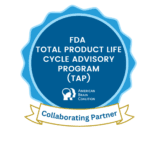Hello. My name is Christie Alexander. I have worked as an Early-Childhood educator for 21 years. A few years ago, I was diagnosed with a rare disease called Olivopontocerebellar Atrophy (OPCA). But wait, you may be thinking, “I thought this was a story about Ataxia?” It is. Being given an incorrect/outdated diagnosis is part of my story. After sharing a small version of my story on an Ataxia support group, I found that many people had the exact same story. They were also given this same diagnosis. After all, it shares the same exact symptoms, prognosis, and even brain scans as Ataxia. So if your neurologist isn’t aware of Ataxia, they just may not know. I’ll get in to how I was finally given the correct diagnosis of Ataxia in just a bit.
The Beginning
About 8-9 years ago, I started noticing a difference in my balance. I have always been what you would consider clumsy, so falling or walking into the corners of walls was nothing new. This just felt different. I couldn’t even stand up to put my pants on anymore. I do have a wonderful Primary Care Physician (PCP). After listening to me describe my symptoms, he suggested that I try yoga for a year in order to improve my balance. I thought that sounded fine, so I did. After a year of doing yoga 3 times a week, my balance wasn’t improving. In fact, it was getting worse. This time, my PCP referred me to a neurologist.
At our first meeting, my neurologist watched me perform a series of tests- much like a field sobriety test. Afterwards, she scheduled an MRI for me. I was then diagnosed with OPCA. She said according to my brain scans, I looked like a 60 year old woman with a history of a drinking problem. I was 37.
So, I’m going to get a little scientific on you for a moment only for those that may be reading this that aren’t familiar with Ataxia or OPCA. Olivopontocerebellar atrophy (OPCA) is a term used for a progressive condition characterized by the degeneration of nerve cells (neurons) in specific areas of the brain. OPCA can be viewed as a finding of several diseases, and indicates a form of progressive Ataxia (abnormal or uncontrolled movements) distinguished by characteristic findings in brain imaging studies and at autopsy. The main symptom is clumsiness that slowly gets worse. Other symptoms may include problems with balance; speech or swallowing problems; difficulty walking; abnormal eye movements; muscle spasms; and neuropathy. There is no cure for OPCA, and management aims to treat symptoms and prevent complications.
To put it in layman’s terms, my disease makes me look like I’m drunk all of the time. Yay. (Sounds exactly like Ataxia, right?)
Troubles at Work
At the time I was diagnosed, I was having many problems at my job. I had been a long time kindergarten teacher and had a very good reputation. As I started developing symptoms of this disease, I found myself losing the ability to write. That’s a very big ordeal for a kindergarten teacher. After teaching a handwriting lesson, I found myself telling my students, “just go and do it better than me.” I knew I needed a change so I started observing pre-k classes to see if it was something I would be interested in- and to see if I thought it would make a difference for me. There is a tremendous amount of writing that has to be done as a teacher- reports, conference forms, testing, etc… Pre-k was a different world and had none of that. There is plenty of teaching going on- just not with pencil and paper. There also had to be 2 teachers in each class at all times, which would help me with my disability.
Each summer, teachers take many classes for professional development. I will never forget August 10, 2016. It was one week before classes resumed and all of the kindergarten teachers met together because we were given an entirely new program to teach literacy. One week. I had to completely change the way I had taught for 15 years and learn it all in one week- oh, and I still had 3 days to decorate my classroom for the new school year. That was the day I had my first panic attack.
I am lucky to have a wonderful support system. My family knew immediately that something was wrong with me. They worked right alongside of me to get my classroom ready. My retired mom even spent the first week of school with me to do anything I needed, help with writing- and to force me to eat. I was already showing signs of depression or having a breakdown. I started losing weight, I spent every break I had from my students laying on my classroom floor, and every second at home in bed. After one crying session, my husband finally convinced me to see my doctor. That’s when I was diagnosed with severe anxiety so I started medication and therapy. I had to take an entire week off of school.
I confided my troubles with my principal and she promised to help me. I had a meeting with the director of Human Resources who said he felt sorry for me but there was nothing he could do. I kept fighting and was finally allowed to have another adult in the classroom with me to help with writing and anything else I needed. That felt like a small victory but it only made things worse. My co-workers didn’t understand what I was going through and started gossiping and alienating me. They felt like I was getting special treatment. And for what? To the outside world, I looked completely normal.
I brought my feelings to my principal and pleaded with her to let me move to a pre-k class the following year. She said she would, but didn’t. I was crushed. Little did I know that God had already set a plan in motion for me.
Women's Conference
A few weeks after my breakdown, my church family had a weekend ladies conference. No one knew what I had been going through, but I was asked to share a personal story about a time I struggled in life and how God was using that to help others. They thought I would probably speak about a divorce I went through many years ago. Boy were they wrong. I spilled my guts to these women. I told them everything. I ended my talk by saying that I feel like I’m right in the middle of my story and I have no idea how God is going to use this to help others, but I know he will.
Afterwards, I had so many women talk to me privately about their struggle with depression or anxiety. Right then and there, I decided that I was going to try to make a change. Why is this subject matter considered “taboo?” Why did all of these women feel like they needed to talk to me in private? Every chance I get, I try to be an advocate for those with depression or anxiety. I try to talk about it as much as I can because we need to have these conversations. There is no shame at all in this and one day, my hope is that people realize it.
Acceptance
I kept stumbling and falling so my neurologist asked me to document each fall so I could see for myself how often they were happening. Long story short, within 1 year, I fell approximately 2 times per month and had 3 concussions.
It was obvious to my neurologist that I needed a cane but I had a hard time accepting it. The only thing that kept running through my head was that I was now going to be an old lady. She suggested googling canes and see if I could find some I liked. I actually did. I now have 5 canes in all different colors but in the same design. I like “bling” and they have rhinestones around the top. I even got my first cane monogrammed. I think in order for me to be “ok” with using a cane, I had to get some I wasn’t ashamed to carry around.
Not everyone saw it that way. I had to deal with hearing phrases like “you just want everyone to look at you” when, in fact, that was the last thing I wanted. You know what, you be you! If using a mobility aid that appeals to you will actually get you to use one, who cares what other people think? Your safety is what’s important.
Johns Hopkins Hospital
My uncle lives in Maryland and strongly urged me to come to Johns Hopkins Hospital to be checked out by an Ataxia specialist since there are no specialists in the diagnosis I had. I did and this doctor was fairly certain that I did have Ataxia but wanted to do a genetic test to be sure.
He was correct. I have Spinocerebellar Ataxia Type 2 (SCA2). It is hereditary. I discovered that my grandmother had it as did her father. My father 100% has it but is not showing symptoms. My family on my father’s side is in the process of getting tested. My brother’s results came back-negative! That means none of his 4 beautiful children will have this. In Ataxia, once the chain is broken, it remains broken forever.
I am actually thankful for this “new” diagnosis. Only because you can research more about it and there are online support groups on Facebook. It’s wonderful to be able to connect with others who know exactly what you are going through. I didn’t have this before. I also try to use this as a platform to bring positivity in the lives of people who are sad, depressed, or just need someone to talk to. I’ve been there and come through the other side. It will get better. Your body might not, but it’s all how you chose to look at things.
Change at Work
Remember how I said earlier that God was already at work for me? The next school year, we had a new principal. I continue to see a therapist and that has helped me to find my voice and stand up for myself. I printed off pages that explain what SCA2 is, got a letter from my neurologist stating that I should be moved to pre-k, and left it on her desk. I have worked with this principal for 4 years and this is what she had done for me:
- I teach pre-k
- I wear tennis-shoes every day (to prevent falls)
- I wear scrubs or jeans daily
This upcoming school year, I will have a 504 plan which gives me a personal para-professional. Basically, she is an extension of me. She will write, do anything fine motor that I can’t, get to students quickly at recess, etc… I am very excited to see how this works out
I'm Doing the Best that I Can
My life is far from perfect! Teaching pre-k is exhausting. There are many days where I come home at 3:30 and sleep until my husband wakes me to eat dinner, then I go back to sleep again only to do it all again the next day. I’m just trying so hard not to go on disability. I only have 7 more years. I really love what I do and don’t want to stop. I’m truly lucky to have a great support system.
One thing I had to stop wearing around the house is regular socks. If you are in the beginning stages of Ataxia, stop now! Either go barefoot or make sure your socks/slippers have those non-skid dots on them. Every move I make in my house has to be purposeful since I don’t use my cane inside. Each step I take is slow, my stance is wide, and if there is something to hold on to like a counter or the back of the couch, I use it. If I ever have to pick something up from the floor, I hold on to something and bend with my knees not my back. Never bend over head first- I will just keep going until I fall.
I'm Doing the Best that I Can
My life is far from perfect! Teaching pre-k is exhausting. There are many days where I come home at 3:30 and sleep until my husband wakes me to eat dinner, then I go back to sleep again only to do it all again the next day. I’m just trying so hard not to go on disability. I only have 7 more years. I really love what I do and don’t want to stop. I’m truly lucky to have a great support system.
One thing I had to stop wearing around the house is regular socks. If you are in the beginning stages of Ataxia, stop now! Either go barefoot or make sure your socks/slippers have those non-skid dots on them. Every move I make in my house has to be purposeful since I don’t use my cane inside. Each step I take is slow, my stance is wide, and if there is something to hold on to like a counter or the back of the couch, I use it. If I ever have to pick something up from the floor, I hold on to something and bend with my knees not my back. Never bend over head first- I will just keep going until I fall.
Just Keep Swimming, Just Keep Swimming
Any doctor will tell you that working out in water is best for people who are unable to move “normally” on land. I’m not a big swimmer but heard that if you are just moving in the water, you are getting resistance. I tried it for a few weeks and found that I had no problems running, hopping or skipping in water so I decided to take an Aqua Zumba class. I was on the dance team in high school and thought it sounded like fun. WOW! During my first class, I had a silly grin on my face the entire time. That was 2 years ago. This is a wonderful way to relieve stress, stay fit and have fun!
Coming to Peace
Since being diagnosed with Ataxia, I do anything and everything I can to bring awareness- not on a grand scale. Maybe one day I will have that opportunity. I do little things like always wearing Ataxia or rare disease t-shirts. I also have a rare disease tattoo that prompts questions and I am more than happy to answer them. I already have an Ataxia specific tattoo for my next one; whenever that will be.
Back when I was diagnosed with OPCA, I searched for a local support group with no luck so I decided to create one of my own. This monthly support group, called Share Your Rare, is for any person with a rare disease and their caregiver because there are so many different rare diseases out there with no support. I feel like we can support each other. We have been meeting for 5 years.
I also give back to the Miss America Scholarship System. During college, I had the honor of representing local cities in the Miss Arkansas Pageant 4 different times. Now, I volunteer as a contestant chaperone during the week of competition. This also gives me a chance to spread the word about Ataxia because the contestants always ask about it. I also give a scholarship called “Don’t Limit Me” to a contestant who either has overcome something great in her life or has worked with people with disabilities (I like to change it up so the contestants don’t know who will earn it). This scholarship program gives the most money to women in America and I am proud to be a small part of it.
I believe I have Ataxia for a reason. Why? I don’t know. But I have it and there’s nothing I can do to stop it so I am going to make the best of it while I can. Whether it be raising awareness or helping others with a rare disease. Count me in.
Read Other Member Stories
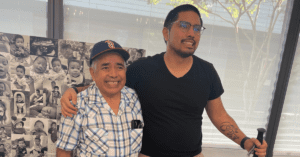
Sly F
Hello my name is Sly. I’m 33 years old. Started to show symptoms at age 21, diagnosed at age 25. Fun fact: before I got diagnosed is that I hiked Read More…

Lillian O’Connor
I was diagnosed with Gluten Ataxia Disease 2 years ago. I went to every specialist and checked myself into the hospital for tests. I had a brain MRI. Every doctor Read More…
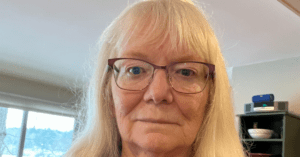
Marybeth Barker
Shortly after returning from a once in a lifetime vacation to Turkey in 2010, at age 58, I began to experience odd neurological symptoms and profound exhaustion. I felt like Read More…
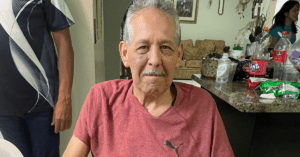
Neyveth Duarte
My name is Neyveth Duarte and my dad was officially diagnosed with Ataxia earlier this year. My dad is my hero and he is going through a really hard time Read More…
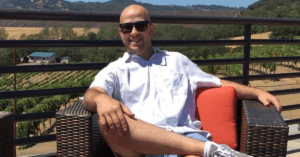
Adam Nelson
I grew up in a small & rural town of about 3,500 people in central Minnesota. I was raised in a blue-collar middle class home, with both loving parents and Read More…
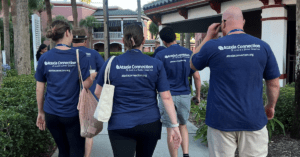
Ataxia Connection Travel Grants Bring Over 50 Attendees to the 2025 Annual Ataxia Conference
Submitted by Theresa Nelson, Executive Director at Ataxia Connection It is an exciting opportunity for our organization, Ataxia Connection, to travel and attend the Annual Ataxia Conference (AAC) as a Read More…









